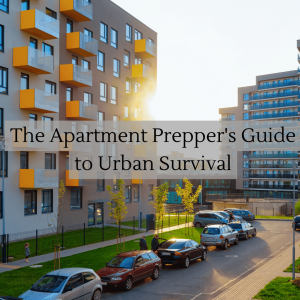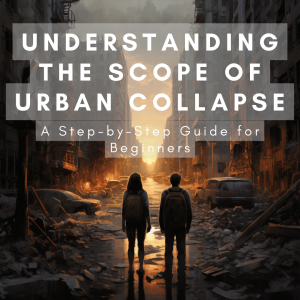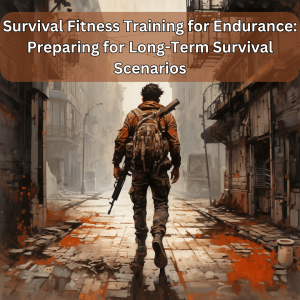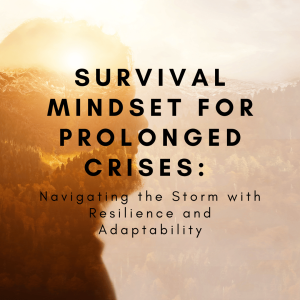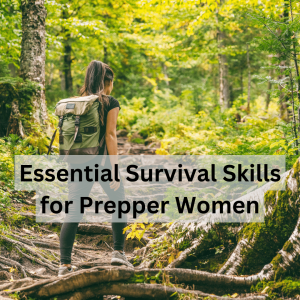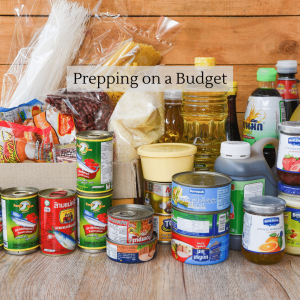The possibility of an economic collapse is a concern for many individuals. While we hope for stability, it’s wise to be prepared for unexpected financial challenges. By taking proactive steps to ensure financial preparedness, you can better navigate potential economic downturns. In this article, we will discuss ten tips for prepping your finances in anticipation of an economic collapse.
Economic Collapse: 10 Financial Preparedness Tips
- Build an Emergency Fund: Creating an emergency fund should be your top priority. Aim to save at least three to six months’ worth of living expenses. This fund will act as a safety net during tough times and provide you with a buffer to manage any unexpected expenses or loss of income.
- Reduce Debt: Lowering your debt burden is crucial during uncertain economic times. Focus on paying off high-interest debts first and consider negotiating with creditors to establish more manageable payment plans. Minimizing your debt will provide greater financial flexibility when faced with economic hardships.
- Diversify Your Income: Relying solely on one income stream is risky during an economic collapse. Explore opportunities to diversify your income by starting a side business, freelancing, or investing in passive income sources such as stocks, real estate, or peer-to-peer lending. Multiple income streams can help sustain your finances during challenging periods.
- Create a Budget: Developing a comprehensive budget is essential for effective financial planning. Track your expenses, prioritize essential spending, and cut back on non-essential items. A budget will help you identify areas where you can save and allocate funds toward essential needs, ensuring you’re well-prepared for an economic downturn.
- Invest in Tangible Assets: During an economic collapse, the value of paper assets like stocks and bonds may diminish. Consider diversifying your investment portfolio by acquiring tangible assets such as gold, silver, or real estate. These assets often retain value or appreciate during turbulent economic times, providing a hedge against inflation and currency devaluation.
- Stock Up on Essentials: In times of economic crisis, the availability and affordability of essential goods may become uncertain. Prepping involves gradually building a stockpile of non-perishable food, water, medication, and other essential supplies that can sustain you and your family during emergencies. This ensures you’re not solely reliant on the availability of stores.
- Educate Yourself: Financial literacy is crucial for navigating economic turbulence. Invest time in learning about personal finance, investment strategies, and economic trends. Stay informed about global and local economic indicators, as this knowledge will help you make informed decisions to safeguard your finances.
- Strengthen Community Connections: In times of crisis, a strong support network can be invaluable. Develop relationships with like-minded individuals who share your concerns about economic collapse. By working together, you can share resources, knowledge, and support, creating a resilient community that can withstand economic challenges more effectively.
- Review Insurance Coverage: Evaluate your insurance policies to ensure they provide adequate coverage for potential economic hardships. This includes health insurance, life insurance, home insurance, and disability insurance. Having comprehensive coverage will protect you and your loved ones from financial ruin in the event of unexpected events.
- Learn Self-Sufficiency Skills: Preparing for an economic collapse involves acquiring practical skills that can help you become more self-sufficient. Learn skills such as gardening, home repairs, basic first aid, and food preservation. These abilities will reduce reliance on external resources, allowing you to adapt and survive during times of economic uncertainty.
Prepping for an economic collapse requires proactive financial preparedness. By implementing the ten tips mentioned above, you can fortify your financial stability and increase your resilience in the face of economic challenges. Remember, preparedness is not about succumbing to fear but rather taking practical steps to protect your financial well-being, ensuring a more secure future for you and your loved ones.
